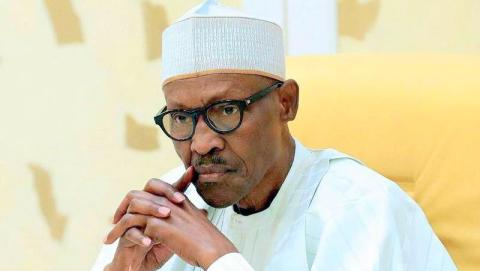
“The recent litany of massacres in Nigeria and its handling by the Federal Government are disturbing," the organisation stated.

The Nigerian Academy of Letters (NAL) has berated the Federal Government's response to killings across the country, describing it as "disturbing".
The organisation, which is an autonomous and non-political body of scholars in the humanities, stated this as part of its submissions at the end of its 20th NAL Convocation, Scientific Session and Investiture of New Fellows, held at the University of Lagos in August 2018.
NAL also supported the calls for restructuring, describing it as "long overdue".
In a communique signed by Professor Francis Egbokhare, NAL President, the organisation also noted that while restructuring the country should not necessarily amount to "dissolution of the federation", it called for dialogue, because "nation-building is a collective affair".
According to Egbokhare, while listing recommendations of the organisation, “The recent litany of massacres in Nigeria and its handling by the Federal Government are disturbing. It is apparent that Nigeria is witnessing socioeconomic and political travails and her national harmony has never been more bedevilled with agitations and frightening descent into dystopia and anomie than in this present decade.
“Nigeria’s corporate existence, like that of any modern state, is subject to negotiation in a rational way (and such remains the inalienable right of Nigerians).
“Nigerians of all professions and ethnic groups have a stake in the development of the country, and are entitled to its dividends. Thus, they must be allowed to contribute to her evolving political and cultural frameworks.
“A nation achieves unity, not through dictatorship, infringement on citizens’ rights or brute force but by negotiation and respect for the humanity of its citizens."
The programme had 112 professors in attendance, and featured the convocation lecture entitled: ’Plural Loyalties and Multiple Identities in Post-independence Nigeria’, which was delivered by Professor Siyan Oyeweso, a professor of history at the Osun State University and substantive director of the Centre for Black Culture and International Understanding, Osogbo, Osun State.
The convocation and investiture of new fellows was presided over by Professor Olu Obafemi, NAL President, while Professor Egbokhare, the vice-president, who succeeded Professor Obafemi, presided over the scientific session.
28 new members were inducted and four new regular fellows (Professor Raufu Adebiyi Adebisi; Olutayo Charles Adesina; Isaac Deji Aiyegboyin and Godwin Sogolo) were admitted into the NAL College of Fellows.
..............................................................................
EXCERPT FROM THE RECOMMENDATIONS
“The recent litany of massacres in Nigeria and its handling by the Federal Government are disturbing. It is apparent that Nigeria is witnessing socioeconomic and political travails and her national harmony has never been more bedevilled with agitations and frightening descent into dystopia and anomie than in this present decade.
“Nigeria’s corporate existence, like that of any modern state, is subject to negotiation in a rational way (and such remains the inalienable right of Nigerians).
“Nigerians of all professions and ethnic groups have a stake in the development of the country, and are entitled to its dividends. Thus, they must be allowed to contribute to her evolving political and cultural frameworks.
“A nation achieves unity, not through dictatorship, infringement on citizens’ rights or brute force but by negotiation and respect for the humanity of its citizens.
“There is an urgent need to rediscover our sense of humanity and fraternity with a view to preserving the dignity of the Nigerian life.
“Pluralism and diversity in languages in modernising states, such as Nigeria, are not in themselves the problem but the cultural/political uses to which the citizens put such languages. Therefore, the tendency or posture to disempower small population languages and their speakers is against Nigeria’s pluralism and linguistic human rights, and retards human capital.
“The political elite have continued to act with utter disregard for the citizenry and in defiance of public opinion.
“The present structure of Nigeria is impeding her political economic growth; in the main, it is disintegrating the citizens’ efforts at instituting a collective identity and maintaining peaceful coexistence."
In view of the above observations, the following recommendations were made:
“Concerted efforts should be made by intellectuals as well as the political class to rigorously critique the state, essence and nature of Nigeria’s political life”
“As Nigeria continues its march to modernity, the Nigerian state should consciously patronise and nurture programmes that would assist in deploying the nation’s diversity as a source of strength, not weakness, at the national level.
“Bing cognizant of the fundamentality of loyalty as an indispensable element for state prosperity, NAL calls on the government at the centre to improve on its welfare programmes for the citizenry as it is the first precedent to the prevention of disloyalty. Such welfare programmes would equally prevent the emergence of non-state violent actors, such as Boko Haram, that feed on citizens’ disillusionment with the state in perpetrating atrocities and broandage.
“The academic sector needs to be empowered through research funding opportunities to be able to examine issues on nationhood fairly and deeply.
“Academics in the country need to discard their biases and examine national issues impartially to be able to make meaningful contributions to national development.
“Nigerians must reinvent political parties; that is, our political elite must establish political parties that prioritise politics od ideas, ideologies and, sustainable growth and development.
“The leadership and political elite should respect public opinions.
“The nation should prioritise constitutional order and humane values
“ A negotiable restructuring of the country, which does not amount to dissolution of the federation, is long overdue. It is pertinent to dialogue dispassionately on national issues because nation-bulding is a collective affair."